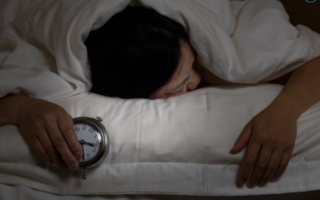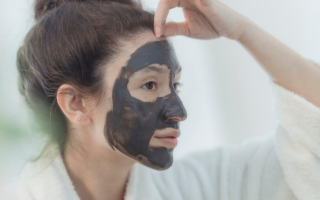Struggling to sleep after a car accident is common; try relaxation techniques, establish a sleep routine, avoid screens, exercise, and seek professional help. Insomnia following a vehicular incident can stem from both physical discomfort and psychological stress.
A car accident can jar both your body and mind, often leading to sleep disturbances post-collision. It’s crucial to address these issues promptly, as restful sleep plays a vital role in the healing process. A disrupted sleep pattern can exacerbate stress and impede recovery, making it important to explore effective strategies to regain your normal sleep cycle.
These tips are not only practical but also grounded in understanding the delicate interplay between physical and emotional health. Ensuring a tranquil environment and engaging in calming activities before bedtime can significantly improve your sleep quality. Remember, while these strategies are helpful, patience and consistency are key to overcoming post-accident sleeplessness.
Table of Contents
Understanding Insomnia After A Car Accident
Struggling to sleep after a car accident is not uncommon. The sudden shock and stress of the event can lead to insomnia. Understanding insomnia after a car accident is crucial for recovery. It’s a condition where the mind and body find rest elusive, despite the need to heal. This post will guide you through understanding the impact of a car accident on sleep and share effective ways to combat insomnia.
Physical And Emotional Impact
Experiencing a car accident can severely affect both your body and emotions. The physical injuries might be obvious, ranging from minor bruises to more severe conditions. These can cause discomfort, leading to trouble sleeping. Emotional turmoil often accompanies the physical pain. Stress and anxiety may surge, making relaxation and rest difficult. Below are key points on how an accident affects sleep:
- Physical discomfort: Pain from injuries can keep you awake.
- Stress: The mental replay of the accident increases stress levels.
- Anxiety: Worry about recovery, finances, or legal issues can be overwhelming.
| Impact | Details |
|---|---|
| Physical Pain | Backache, headaches, fractures |
| Emotional Distress | Fear, PTSD, depression |
The link between physical injuries and sleep is direct. Pain makes finding a comfortable sleep position hard. Emotional distress, such as post-traumatic stress disorder (PTSD) or depression, can lead to nightmares or fear of sleep itself. Recognizing these impacts is the first step toward managing post-accident insomnia.
Common Symptoms Of Insomnia
After a car accident, insomnia can manifest in various ways. Here’s a look at some common symptoms you might encounter:
- Difficulty falling asleep: Tossing and turning for hours.
- Waking up often: Sleep is shallow and easily disrupted.
- Waking up too early: Unable to sleep again once awakened.
- Not feeling rested: Despite spending hours in bed.
Recognizing these symptoms early can help in managing them better. Here’s a table summarizing the symptoms and their effects:
| Symptom | Effect |
|---|---|
| Falling Asleep | Long hours spent trying to sleep |
| Staying Asleep | Night interrupted by wakefulness |
| Early Awakening | Morning starts earlier than planned |
| Feeling Rested | Daytime fatigue and tiredness |
If you find yourself experiencing these symptoms, it’s vital to address them. They can interfere with your daily life and slow down the healing process. Understanding the common symptoms of insomnia can empower you to seek the right help and start on the path to better sleep.
Creating A Restful Environment
Can’t sleep after a car accident? You’re not alone. Many people find it hard to rest. A key to better sleep is creating a restful environment. This means making your bedroom a sleep haven and having a bedtime routine. Let’s explore how to do this.
Optimizing Sleep Environment
First, let’s make your bedroom perfect for sleep. Start with the basics:
- Keep it cool: A cool room helps you fall asleep faster. Aim for 60-67°F.
- Make it dark: Use blackout curtains to block light. Even small lights can disturb sleep.
- Quiet is key: Reduce noise. Use earplugs or a white noise machine if needed.
Next, focus on your bed:
- Comfortable mattress: Make sure your mattress supports you well.
- Choose the right pillow: Your pillow should keep your neck in line with your spine.
Finally, remove distractions:
- No screens: Turn off TVs, phones, and other screens at least an hour before bed.
- Keep it tidy: A clutter-free room helps your mind relax.
Establishing A Bedtime Routine
Now, let’s set a bedtime routine. This tells your body it’s time to sleep. Here are steps to follow:
- Set a schedule: Go to bed and wake up at the same time every day, even on weekends.
- Relax before bed: Take a warm bath or read a book to calm your mind.
- Avoid caffeine and heavy meals: Don’t consume them close to bedtime.
Next, create a ritual:
- Dim the lights: Lower lights signal your brain to produce melatonin, the sleep hormone.
- Practice relaxation techniques: Try deep breathing or meditation to ease into sleep.
Finally, if you can’t sleep, don’t stay in bed tossing and turning:
- Get up and do something calm: Read or listen to soothing music, then try to sleep again.
Following these steps can make a big difference. Your mind and body will thank you.
Exploring Non-medical Remedies
After a car accident, many people find sleep elusive. Your body’s natural response to stress can make restful sleep tough. This post explores five effective non-medical ways to reclaim the night and ensure better sleep. These strategies focus on relaxation and lifestyle changes. They are easy to try and can make a big difference in your sleep quality.
Relaxation Techniques
Relaxation is key to a good night’s sleep, especially after a car accident. Stress and anxiety can keep you awake. To combat this, try the following relaxation techniques:
- Deep Breathing: Sit or lie down in a quiet place. Breathe in slowly through your nose. Let your chest and belly rise. Breathe out slowly through your mouth. Repeat several times.
- Progressive Muscle Relaxation: Tense each muscle group for a few seconds then relax it. Start with your toes and work your way up to your head.
- Guided Imagery: Close your eyes. Picture a calm, peaceful place. Focus on the details in this place to distract your mind from stress.
Create a bedtime routine that includes these techniques. It will signal your body that it’s time to wind down. You can also try:
| Activity | Description | Time |
|---|---|---|
| Meditation | Focus on your breath or a mantra to calm your mind. | 10-20 minutes before bed |
| Yoga | Gentle poses can relax your body and prepare you for sleep. | 20-30 minutes before bed |
| Reading | A book can take your mind off worries and relax you. | 15-30 minutes before bed |
Diet And Exercise
What you eat and how you move can affect your sleep. After a car accident, it’s important to focus on healthy habits. Here are some diet and exercise tips:
- Eat Light at Night: A heavy meal can disrupt sleep. Choose a light, easy-to-digest meal in the evening.
- Avoid Stimulants: Coffee, tea, and chocolate can keep you awake. Try not to have them in the hours before bed.
- Stay Hydrated: Drink enough water during the day. But don’t drink too much right before bed to avoid waking up at night.
Regular exercise can help you sleep better. But, don’t work out too close to bedtime. Aim to finish exercising at least three hours before you plan to sleep. Gentle activities like walking or stretching are good choices.
Keep a food and exercise diary. Note what you eat, when you exercise, and how you sleep. Look for patterns. This can help you find the best routine for a good night’s sleep.

Counseling And Therapy
Struggling to sleep after a car accident is common. The experience can trigger stress and anxiety. Counseling and therapy might offer relief. These methods help tackle the mental hurdles blocking restful sleep. Explore how therapy could be a key part of recovery. Let’s delve into two forms that can make a real difference.
Cognitive Behavioral Therapy
One powerful option is Cognitive Behavioral Therapy (CBT). It’s a short-term, goal-oriented treatment. CBT focuses on changing thought patterns that affect sleep. Here’s why CBT could be a game-changer for better rest:
- Identifies negative thoughts: CBT helps pinpoint and challenge beliefs that cause stress.
- Teaches relaxation techniques: It includes methods like deep breathing to calm the mind.
- Improves sleep habits: CBT can restructure bedtime routines for optimal sleep.
CBT is practical and hands-on. It often involves:
- Keeping a sleep diary.
- Establishing a steady sleep schedule.
- Learning to associate bed with sleep only.
Studies have shown that CBT can reduce insomnia and improve sleep quality. It often includes sessions with a therapist and at-home exercises. The table below outlines a typical CBT program for sleep issues:
| Week | Focus | Activities |
|---|---|---|
| 1-2 | Understanding Sleep |
|
| 3-4 | Behavioral Adjustments |
|
| 5-6 | Cognitive Restructuring |
|
Support Groups And Counseling Services
Another vital resource is support groups and counseling services. These provide a space to share experiences and receive empathy. Here are benefits of such groups:
- Feeling understood: Sharing with those who have similar experiences can provide comfort.
- Learning from others: Discover new coping strategies from peers.
- Reducing isolation: Connect with a community to combat loneliness.
Support groups come in various formats:
- Face-to-face meetings.
- Online forums and chats.
- Telephone helplines.
These services often include professional guidance. Counselors or psychologists may lead sessions. They help ensure a safe, constructive environment. The table below shows typical services offered:
| Type | Service | Description |
|---|---|---|
| Group Counseling | Facilitated Discussions |
|
| Online Support | Virtual Communities |
|
| One-on-One Counseling | Personalized Therapy |
|
Many find solace in these groups, feeling less alone in their struggles. They learn and grow together, fostering a sense of community. For many, this support is crucial in their journey to peaceful sleep.
Understanding Medication Options
After a car accident, many people find it hard to sleep. Your body is in shock. Your mind keeps replaying the event. It’s a tough time. You might feel alone and unsure about what to do. Don’t worry. Help is here. This post explores how medications can help you sleep. Let’s look at the options.
Prescription Medications
Doctors sometimes give special medicine for sleep after a car crash. These can really help. But they must be used the right way. Here are some you might know:
- Sleeping Pills: They tell your brain it’s time to sleep.
- Anti-Anxiety Drugs: They calm your nerves. No more racing thoughts.
- Antidepressants: If you’re feeling really down, these can help your mood and sleep.
But remember, these drugs can have side effects. Always talk to your doctor first. They know what’s best for you. Here’s a quick look at some common prescription sleep aids:
| Medication | Use | Common Side Effects |
|---|---|---|
| Zolpidem | For short-term sleep issues | Drowsiness, dizziness |
| Lorazepam | To calm anxiety and sleep | Weakness, tiredness |
| Amitriptyline | For mood and sleep | Dry mouth, blurry vision |
Take them as your doctor says. Don’t drink alcohol with them. It can make the side effects worse.
Over-the-counter Remedies
Sometimes, you might not need strong medicine. There are easier options at the store. They’re called over-the-counter (OTC) remedies. Let’s look at a few:
- Antihistamines: They make you sleepy. But don’t use them too much. They can stop working over time.
- Herbal Supplements: Things like melatonin or valerian root. They’re natural. But even natural things can have risks. Always check with your doctor first.
Here’s a handy table to help you choose:
| Remedy | How It Helps | Things to Consider |
|---|---|---|
| Diphenhydramine | Makes you sleepy | Can cause dry mouth, don’t use long-term |
| Melatonin | Tells your brain it’s bedtime | Start with a low dose to see how it works |
| Valerian Root | Can help you relax and sleep | Not for pregnant women, can interact with other meds |
OTC remedies can be a good choice. But be smart. Read the labels. Talk to a pharmacist or doctor if you’re unsure. They can guide you to the best choice for a good night’s sleep.
Lifestyle Changes For Better Sleep
Struggling to sleep after a car accident is common. Your body and mind are in shock. Fear and pain can keep you wide awake. Good sleep heals you. It helps your body and mind recover. For better sleep, you’ll need to change your daily habits. This post will guide you on how to adapt your lifestyle for a peaceful night’s sleep. Let’s explore practical steps to overcome sleepless nights following a car accident.
Stress Management Techniques
Stress can make sleep seem impossible. But, there are ways to manage it. First, try deep breathing exercises. Inhale slowly, hold for a few seconds, exhale slowly. Repeat this several times. It can calm your mind. Next, consider meditation. Even 10 minutes a day can reduce stress. You can also write down your thoughts in a journal. Seeing your worries on paper can make them less scary. Exercise is another powerful tool. It releases endorphins, which are natural stress-fighters. Aim for 30 minutes of activity a day. Remember, the goal is to relax your mind for better sleep.
- Deep breathing exercises
- Daily meditation
- Journaling thoughts
- Regular exercise
Balancing Work And Rest
Balance is key for sleep. Too much work leads to burnout. Too much rest can make you feel lazy. Find a healthy balance. Start by setting a strict time to stop work each day. After that, focus on relaxing activities. Reading, listening to music, or taking a warm bath can help. Make sure you get enough physical activity during the day. It can make you tired and ready for sleep at night. Lastly, create a bedtime routine. This signals your brain that it’s time to wind down. Stick to this routine every night. With time, your body will learn when it’s time to sleep.
- Set a work cut-off time
- Engage in relaxing activities
- Get daily physical activity
- Establish a bedtime routine
Conclusion And Moving Forward
Struggling to sleep after a car accident is common. Our bodies and minds need time to heal. You’ve learned five effective ways to help your sleep return to normal. Let’s embrace the path to recovery and find the support we need to move forward.
Accepting The Recovery Process
Healing takes time, and patience is key. Your body has been through a lot. Recognize that each day is a step towards feeling better. Here are some ways to support your recovery:
- Stay consistent with your sleep routine.
- Use relaxation techniques before bed.
- Keep a sleep diary to track patterns.
Remember, it’s okay to have good days and bad days. Your journey might look like this:
| Week | Recovery Milestones |
|---|---|
| 1-2 | Understanding your sleep challenges |
| 3-4 | Establishing a bedtime routine |
| 5-6 | Seeing improvements in sleep quality |
Seeking Ongoing Support
Support is vital. You don’t have to do this alone. Reach out to friends, family, or support groups. They can offer a listening ear or share their own experiences. Consider these support options:
- Talk to a healthcare professional for advice.
- Join a support group for accident survivors.
- Connect with others through online forums.
Support can come in many forms. Whether it’s a comforting chat or professional counseling, find what works for you. Your support network might include:
| Type | Description |
|---|---|
| Personal | Family and friends who care about you. |
| Professional | Doctors, therapists, and counselors. |
| Community | Groups and activities that bring people together. |
Frequently Asked Questions
Why Am I Not Sleeping Well After A Car Accident?
Post-accident stress and anxiety can disrupt sleep patterns. Physical pain from injuries often contributes to difficulty sleeping. Consult a healthcare professional if poor sleep persists after a car accident.
How Long Should I Stay Awake After A Car Accident?
After a car accident, stay awake for at least 24 hours. Monitor symptoms closely, as this period is crucial for spotting any delayed effects. Always consult a healthcare professional for personalized advice.
What Is The Best Position To Sleep In After A Car Accident?
The best sleeping position after a car accident is on your back with a pillow under your knees, as it aligns the spine and reduces tension.
How Long Does It Take Nerves To Heal After Car Accident?
Nerve healing after a car accident can take several weeks to months, depending on severity. Some nerves may recover within 3-6 months, while others could take longer or require medical intervention.
Conclusion
Navigating sleep challenges after a car accident is tough, but not impossible. These five strategies offer a starting point toward restful nights. Remember, healing takes time and patience. For further assistance, consulting a healthcare provider is advisable. Embrace these techniques and step closer to reclaiming your night’s peace.
Sweet dreams await on the other side of recovery.



